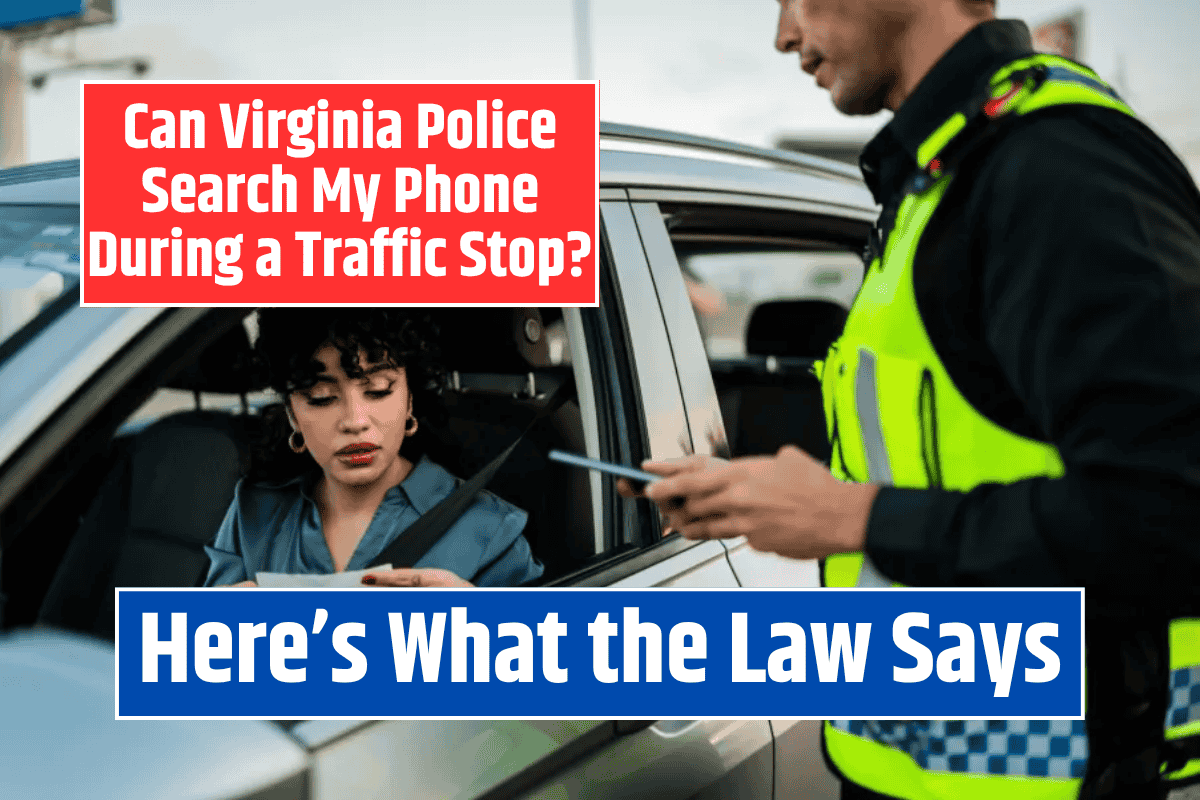In today’s digital world, our phones are like our digital diaries. They store photos, messages, banking details, emails, and even our location history. So, what happens when the police pull you over in Virginia—can they search your phone without permission or a warrant?
A recent Virginia court decision has sparked serious concerns about privacy and digital rights. Let’s break it down in simple terms so you know your rights and what to do if you ever find yourself in this situation.
The Futrell v. Commonwealth Case: What Happened?
A key legal case, Futrell v. Commonwealth, changed how phone searches work in Virginia. In this case, police found a cell phone at a restaurant while investigating a shooting. Instead of getting a warrant, they simply turned the phone on and looked through it. The evidence they found helped them arrest the phone’s owner.
The court ruled that since the phone was “abandoned,” the police didn’t need a warrant to search it. They claimed that the owner had given up any privacy rights just by leaving the phone behind.
What Does “Abandoned” Really Mean?
The ruling is concerning because it brings up the question: when is a phone truly abandoned?
According to the court, two main things can make a phone count as abandoned:
You physically leave the phone behind—like forgetting it in a restaurant.
You deny owning the phone—if you say, “That’s not my phone,” the police can argue it’s abandoned.
In Mr. Futrell’s case, he never denied that the phone was his. Still, the court said the fact that he physically left it was enough to count as abandonment.
So, if the court believes you abandoned your phone, you lose all privacy rights to its contents. That includes texts, emails, photos, app data, and more. And yes, that means police can search it without a warrant.
Why This Is a Problem
Most people misplace or lose their phones at some point. But there’s a thin line between losing a phone and abandoning it. Courts now have to decide whether someone meant to abandon their phone or just forgot it.
The risk is high because if a court rules it was abandoned, police can legally access all digital contents without your permission.
This also applies if you throw away or trade in your phone. Since these actions show you no longer want the phone, the court may consider it abandoned. That gives police free access to anything stored on it.
Abandonment Doctrine: The Legal Backdrop
The ruling in Futrell used a legal rule called the “abandonment doctrine”. This idea started with a 1924 case, Hester v. United States, where the Supreme Court said police could search a moonshine bottle someone threw away without a warrant.
Over the years, courts have applied this rule to things like trash, drug tools, or personal items left behind. But treating a smartphone the same way as an old bottle or piece of paper is risky, especially given how much personal information our phones hold.
Modern Phones vs. Old Laws
The U.S. Supreme Court has already warned against blindly applying old laws to modern tech. In Kyllo v. United States (2001) and Riley v. California (2014), the Court said digital technology brings unique privacy concerns that older cases didn’t consider.
For example, Riley made it clear that searching a phone is not the same as checking a wallet or glove box. Searching a phone is like accessing someone’s entire life.
In Carpenter v. United States (2018), the Court added that courts should be careful when applying old rules to new digital situations. But unfortunately, Futrell didn’t follow this advice.
So, Can Police in Virginia Search Your Phone During a Traffic Stop?
In most situations, no—they still need a warrant. Just because you’re pulled over doesn’t give police the right to search your phone. But here’s when they might be able to access it:
1. If You Give Consent
If you say it’s okay, police can search your phone. But you’re not legally required to agree.
2. If They Have a Warrant
Police must explain to a judge why they need to search your phone. If the judge agrees, they’ll get a warrant.
3. Under “Exigent Circumstances”
If there’s an emergency—like saving a life—police may be allowed to search your phone without a warrant.
4. If the Phone Is Considered “Abandoned”
As seen in the Futrell case, courts in Virginia may rule that you gave up your rights if you leave your phone somewhere or deny ownership.
What You Should Do
If you’re stopped by police and they ask to search your phone, follow these steps:
Stay calm and respectful.
Ask if they have a warrant.
Say clearly, “I do not consent to a search.”
Do not unlock your phone or hand over your password.
Call a lawyer if the police continue to pressure you.
Avoid leaving your phone behind in public places, even by accident.
The laws around digital privacy are evolving, especially in Virginia. While you still have strong protections under the Fourth Amendment, recent court decisions like Futrell v. Commonwealth show that these protections can be weakened if your phone is viewed as abandoned.
To stay safe, never give consent to a phone search without legal advice and avoid situations where your phone might be seen as discarded or unwanted. Your phone holds too much personal data to take that risk lightly.












